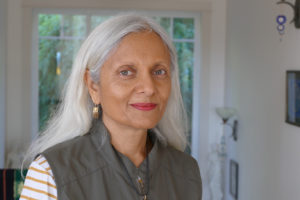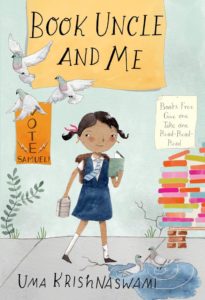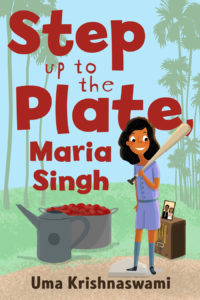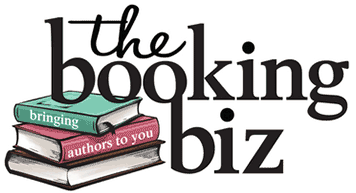
Uma Krishnaswami knows a lot about making a difference in the lives of others. Among her twenty children’s books, her work has been translated in eleven languages, and honored as CCBC Choices, Parents’ Choice, Junior Library Guild Selections, as well as won awards in the U.S. and overseas.
In this guest post, Uma looks at the power of books to inspire children to be their own advocates, standing up to change their world.
Here’s Uma…
All of seven years ago, in 2012, a little chapter book of mine, BOOK UNCLE AND ME, won a manuscript competition in Singapore and was published in India. It was the fictional story of nine-year-old Yasmin, who means to read a book every day for the rest of her life. She was a little bit like the child reader I used to be in the last century—passionate, dedicated, compulsive. Only something goes wrong with Yasmin’s plan, and then that something gets all tangled up with a local election, and soon she has to take her nose out of her book and DO something. But what can a kid do? She can’t even vote!
 Sometimes, as a writer, you get a gift. You feel as if you’re not really writing a story so much as channeling one that’s already out there in the universe and somehow you got lucky enough to be on the right bandwidth to pick it up. It doesn’t happen that often and when it does, you just know that you have to drop everything and write that story. That’s what happened with this book. It wasn’t that I didn’t have to work on it, but it was joyful work, and it all sort of fell into place as if it was meant to be.
Sometimes, as a writer, you get a gift. You feel as if you’re not really writing a story so much as channeling one that’s already out there in the universe and somehow you got lucky enough to be on the right bandwidth to pick it up. It doesn’t happen that often and when it does, you just know that you have to drop everything and write that story. That’s what happened with this book. It wasn’t that I didn’t have to work on it, but it was joyful work, and it all sort of fell into place as if it was meant to be.
BOOK UNCLE AND ME has a simple premise: If you really believe in something, you should do what you can to help save it. It also recognizes something that children’s writers have known for the longest time. Children in the real world may be powerless but they do have voices, and we should do everything we can to support them when they need to make themselves heard.
Especially, as it turns out, when grownup humans, collectively, over time, have messed up in the worst possible way. I speak, of course, of the recent massive turnouts of young people demanding that we do something about climate change. Of 16-year-old Greta Thunberg and her remarkable journey into activism. Of all the others who have stepped up around the world to tell the powerful and wealthy of our planet that they must pay attention to the science and DO something.
 It’s not the first time the young have held up a mirror to the adult world and shown up its hypocrisy—think of the American civil rights movement, Malala Yusafzai’s campaign for education for girls, “water warrior” Autumn Peltier’s fight for indigenous water rights, the March for Our Lives. The list goes on. The young have always been on the forefront of change. They have always spoken truth to power. And they have always been at once brave and vulnerable.
It’s not the first time the young have held up a mirror to the adult world and shown up its hypocrisy—think of the American civil rights movement, Malala Yusafzai’s campaign for education for girls, “water warrior” Autumn Peltier’s fight for indigenous water rights, the March for Our Lives. The list goes on. The young have always been on the forefront of change. They have always spoken truth to power. And they have always been at once brave and vulnerable.
I have written for children for the last 25 years. After a series of other jobs that never felt right, writing became the work of my heart. From the start, it felt natural to give my young characters the power that I never had as a child, in the hope of empowering young readers, one at a time. At some level, I have always felt that children are us, in every way, only fresh to the world and with an eye on the truth.
But I do think we are living now in a special moment in history, one of those times when the young are speaking back. What does this have to do with children’s books, you may ask? Everything. As allies of young readers—writers, illustrators, publishers, editors, teachers, librarians, parents—this is the moment to think deeply about what we do and where it fits into the bigger scheme of things.
Because children can read, and they can and do speak up. But what kind of world do we want our young readers to inherit and what can we each do to make that world real?
